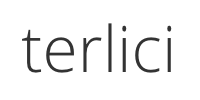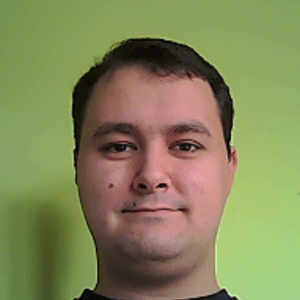Today’s student success spotlight is with Stefan Fidanov. It’s our hope that we’re able to share a different story each week of how a past student has been able to significantly grow their freelance business by applying the concepts they learned from Double Your Freelancing (check out last week’s with Maya Elious). If you feel your story would be a good fit, share why!
Stefan got into freelancing accidentally. After unsuccessfully pursuing product development, he and his partner were offered a job they couldn’t refuse. After relying solely on referrals for clients, their luck finally ran out in early 2013. DYFC changed the way they prospected and wrote their proposals. Shortly thereafter, they landed $130k project!
Tell us about yourself, Stefan.
I’m co-founder of Terlici, a two-person development and design shop for mobile and web applications. We launched officially in 2011, but we’ve been working together since the end of 2010 – so about four years total.

What got you into freelancing? Was it what you expected?
We didn’t start with freelance in mind, but that’s how money came in, so we’ve stuck with it. It all started with a mobile app that we built for ourselves, which accidentally turned very popular (over 175,000 installs, you can read more here). Unfortunately, it made very little money.
At some point a friend of ours (who used our app), knew someone who also needed several mobile applications built. The project was interesting, we were capable of doing it and the money side was also very good. So we accepted and that is how it all begun in December, 2010.
As a result, we didn’t have much in the way of “freelancing expectations,” but we were really happy with the money we were making and the projects we were doing.
Did you ever want to quit or give up?
Since I never set out to be a freelancer, yes. Even after some very successful projects, I still want to go into products and get away from freelancing eventually.
However, I’ve never wanted to give up and be an employee. Even in my “worst hours,” I preferred trying something new and working for myself to getting “a real job.”
“The most challenging part is finding clients who want to pay my rates.”
What were you struggling the most with when you ran into DYFC?
Until 2013, all of our clients came by referral from friends or family and each client returned for additional projects. But around February, 2013, we needed to find money fast. Both my personal savings and our company savings were decreasing and I knew that I only had enough money to last until June – we needed a new way to find clients.
A freelancer friend of mine suggested that I try Elance. He had found several very good projects from there. I agreed and I tried to follow his tactic, which was basically to buy credits and email the same thing to almost everyone until someone responded.
I tried this for a few weeks, but of course it didn’t work. Nobody responded to our proposals. I knew something had to change.
“Then I stumbled upon The Blueprint (DYFC) and everything changed.”
What are some big successes you’ve had recently? What did you do differently?
After reading it over two days, the first thing I did was redesign our site. If you go to it now, you will still recognize words and phrases from the course. Sorry if I copied too much Brennan, but it worked for me!
The other thing that changed was how I was writing proposals to people and how I was communicating with them afterward. From that moment on, I was focusing on them, on their projects and on what they care about, trying to delay everything related to my company to the last part of the emails. This was true for our proposals and also for every consecutive email.
What’s funny, is that once you start writing that way, it also forces you to pick jobs very differently. Jobs which are too short (make me a mobile app) or too vague (like Facebook, but for brown dogs) don’t give you anything to write for. There is no way to write a proposal which focuses on them and their products when there is nothing to go off of.
It seems that every freelancer knows that Elance is a crappy way to try and find well-paying work, but I didn’t know that at the time. Yet, when I changed our approach, we begun getting replies – many replies from really good, well-paying projects with some very nice people. We talked with many of them over Skype to see whether we were a good fit.
We didn’t get the first few but used the experience to practice. Our prospecting process was now so much better, that I believed it was only a matter of time before we found something really good – and we did!
Has your income changed as a result of DYFC?
In May 2013, we were contacted by a startup for a month-long project on Elance to help them with a component they were creating for their system.
“This long month project turned into a year and a half project worth over $130,000 where we re-engineered their entire system.”
We’ve saved most of that, and now we are trying to go into products again. Hopefully, we’ll be more successful than our previous attempts. This time we plan to take a very different approach inspired by Brennan, Amy Hoy and a few others.
What are you most excited about for your business in 2015?
After finishing the large consulting project at the end of last year, I am mostly excited about two things. First, as I mentioned, I want to move successfully into products.
Second, I would like to start helping to people who were like me not too long ago. That’s why I am much more serious about our blog. We are also running a small email course and are active on a few freelance forums.
 Stefan Fidanov is the co-founder of Terlici, a small European software company focused on helping other businesses earn more with consulting and useful products. He works on software development, design and business development. Stephan has been programming and developing, professionally or for competitions, for the last 17 years.
Stefan Fidanov is the co-founder of Terlici, a small European software company focused on helping other businesses earn more with consulting and useful products. He works on software development, design and business development. Stephan has been programming and developing, professionally or for competitions, for the last 17 years.
Stefan is 28 years old and currently living in Sofia, Bulgaria. He earned his Bachelor’s degree of Applied Mathematics and Informatics in Finance from ENSIMAG, France and his Master’s Degree in Management from the University of Cambridge, UK.